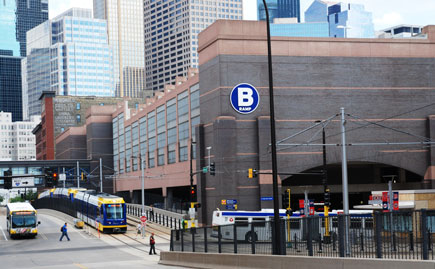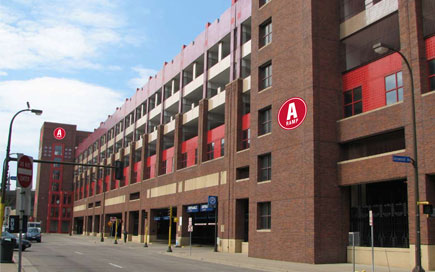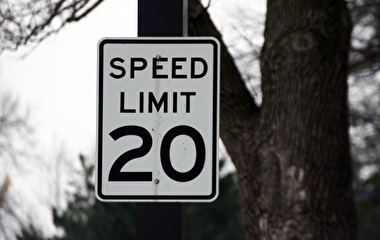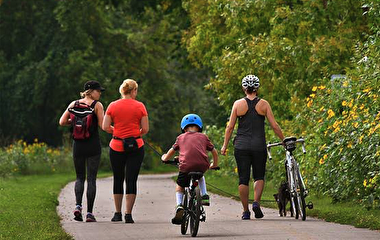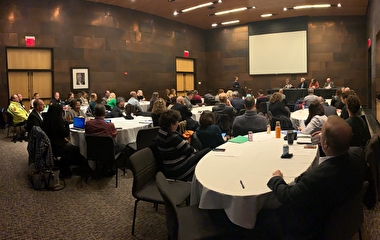Much has changed since the ABC Ramps in Minneapolis were completed in 1992: light-rail lines opened, mobility services sprouted, and technology innovations multiplied. Designed to ease congestion by encouraging carpooling and transit use, the ramps are now increasingly used by solo drivers and surrounded by congested streets. What directions should policymakers take in light of these changes? A U of M team analyzed the issues and made recommendations for the short and long term.
The ABC Ramps are the ending point for I-394, which connects Minneapolis to its western suburbs. The three large ramps are owned by the Minnesota Department of Transportation (MnDOT) and operated by the City of Minneapolis.
“I-394 and the ABC Ramps are notable among interstate projects for their use of high-occupancy vehicle lanes and parking facilities to achieve higher freeway-carrying capacity,” says Frank Douma, director of the State and Local Policy Program at the Humphrey School of Public Affairs.
Since 2010, however, there has been a continual decline in monthly carpool contracts, from about 1,200 to 750. “Single-occupant vehicle contracts are becoming much more prevalent, and the ramps are often full,” says Lisa Austin, MnDOT ABC Ramps coordinator.
To explore ways to reduce solo driving and plan the ramps’ future, MnDOT sponsored an 18-month project with components split among University researchers and several transportation consulting firms. Douma’s team included Professor Yingling Fan, Associate Professor Jason Cao, and researcher Adeel Lari of the Humphrey School.
“We found that all corridors to the ABC Ramps are congested,” Douma says. “But interestingly, in an online survey, more than 60 percent of ramp users said they were not using their preferred commute mode. And of the 54 percent who drive alone, only 12 percent said it was ideal. The majority said they wish they could take transit at least some of the time.”
The ramps successfully attract traffic from the corridors they were designed to serve: I-394 to the west and I-94 to the north. Carpoolers from these specific areas—just over half of traffic to the ramps—receive a discounted monthly rate. “But offering the discounted carpool rate to carpools from across the entire Twin Cities region could help the ABC Ramps better reduce downtown congestion,” Douma says.
The team also recommends other pricing innovations, such as a discounted daily rate for occasional carpoolers and flexible contracts with both ramp access and transit options. “Let’s unbundle the parking benefit and rebundle it into a transportation benefit,” Douma says.
The biggest area of opportunity is to encourage businesses to provide more flexible incentives for employees, Austin says. Currently commuters who receive transportation benefits from their employers choose between a monthly parking contract or a monthly transit pass. “If the ABC Ramps can offer a flexible option that allows part-time parking and part-time transit benefits, it could reduce drive-alone rates and congestion and increase parking availability,” she says.
Douma also advises expanding current services offered to cyclists, pedestrians, and transit riders while adding more drop-off and pick-up areas for ridesharing and more charging stations for electric vehicles. “In the long term, with automated vehicles and vehicle electrification on the way, the ABC Ramps will have to react nimbly to policy and technological shifts,” he concludes. “One day, portions could even be converted to residential or commercial use.”
A final report will be available this fall. “We are very excited about the findings in this study,” Austin says. “It will help us provide commuters with the transportation choices they want and fulfill the ABC Ramps’ purpose to reduce congestion by reducing drive-alone trips.”
